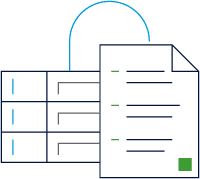OUR LOCAL DPN SPECIALISTS









Australian Securities and Investments Commission (ASIC) data on external administration.
ASIC released its most recent data on external administrations on 4 March 2024 and in summary
- all forms of external administrations, except for Court appointments, saw an increase of 35% from the same period of the previous financial year (July 2023- November 2023);

- all industries, except for arts and recreation services, saw an increase in external administrations. The highest number of external administrations were in the construction, accommodation and food services industries;
- the number of monthly external administrations were consistently higher from the same period of the previous financial year (July 2023- November 2023); and
- of the States and Territories, Tasmania saw the greatest increase with external administrations increasing five-fold from the same period of the previous financial year (July 2023- November 2023).
What is interesting from this data is that all forms of external administrations have increased except for Court appointments. We believe this is due to the Australian Taxation Office (ATO) recently intensifying its efforts in recovering outstanding debts through the Director Penalty Notice (DPN) mechanism first, rather than enforcing its debts through the Courts. This has led directors to consider their options earlier and take decisive actions in relation to outstanding ATO debt.
Understanding the DPN
A DPN is a powerful tool employed by the ATO to recover unpaid Pay-As-You-Go (PAYG) withholding, Goods and Services Tax (GST) and Superannuation Guarantee Charge (SGC) liabilities of a Company from its directors. This legal notice places personal liability on directors for the company's tax debts, making it crucial for directors to be aware of their financial responsibilities.
The Growing Trend
Statistics released by the Tax Institute indicate a notable uptick in the issuance of DPNs in recent years. For the period July 2023 to January 2024, the Tax Institute reported approximately 5,250 DPNs were issued to directors. This escalation underscores the ATO's commitment to cracking down on non-compliance and ensuring the timely lodgement and payment of tax obligations.
Specific Days to Act
To avoid personal liability and safeguard the financial standing of both the business and its directors, it is essential to act promptly. The ATO grants a 21-day window from the issuance of a non-lockdown DPN during which directors can take specific actions in relation to the Company. Here are key steps to consider within this crucial timeframe:
- Seek Professional Advice: Engage with an insolvency practitioner or legal advisor who specialises in insolvency matters. Their expertise can provide valuable insight into the best course of action based on your specific circumstances.

- Appoint an Administrator: If the financial situation of the business is dire, consider appointing a Voluntary Administrator. This can provide breathing space and potentially result in a restructure or sale of the business.
- Liquidation or Wind Up: In some cases, it may be in the best interest of the directors to voluntarily wind up the company. This option should be explored carefully, considering the potential impact on creditors and stakeholders.
- Small Business Restructure: If the DPN is a non-lockdown DPN, and you are trading a business in a corporate structure, your business may be able to access the new Small Business Restructuring regime. Under this option you continue to trade the business as the director while also proposing a Restructuring Plan to your creditors.
There is a misconception that directors can avoid personal liability by entering into a payment plan with the ATO within 21 days, however this is not correct. The payment plan simply allows a director to repay the liability by way of instalments, however the director becomes personally liable for the whole debt after the end of the 21-day period.
Under a lockdown DPN, the only option available to directors to avoid personal liabilities for the amounts owing by the company is to pay the amounts owing in full.
The helpful link here will provide guidance if a DPN is a lockdown or non-lockdown DPN.
Conclusion
As the ATO continues its pursuit of unpaid tax debts through the DPN mechanism, directors must remain proactive. By understanding the increasing trend, taking swift action within the stipulated timeframe, and seeking professional advice as early as possible, businesses can navigate the complexities of debt recovery and protect both their financial interests and personal liability.




